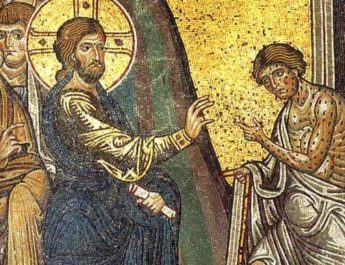2 Peter 1:16-21
Transfiguration A13
16 For we did not followA cleverly devisedB mythsC when we made known to you the powerD and comingE of our LordF JesusG Christ,H but we had been eyewitnessesI of his majesty.J
17 For he received honorK and gloryL from GodM the Father when that voice was conveyed to him by the MajesticN Glory, saying, “This is my Son, my Beloved,O with whom I am well pleased.”P 18 We ourselves heard this voice come from heaven,Q while we were with him on the holyR mountain.
19 So we have the propheticS messageT more fully confirmed.U You will do wellV to be attentive to this as to a lampW shiningX in a darkY place, until the day dawnsZ and the morning starAA risesBB in your hearts.CC
20 First of all you must understand this, that no prophecyDD of scripture is a matter of one’s own interpretation,EE 21 because no prophecy ever came by humanFF will,GG but men and women moved by the Holy SpiritHH spoke from God.
DD “prophecy” = propheteia. 19x in NT. Related to “prophetic” in v19. From prophetes (see note S above). This is prophecy or prediction. This is communicating and acting in accordance with what was revealed from God.
EE “interpretation” = epilusis. 1x in NT. From epi (on, upon, what is fitting) + luo (to loose, release, untie; figuratively, to break, destroy, or annul; releasing what had been withheld). Literally, this is release, unloosing, or unpacking. Figuratively, it is explanation, interpretation, application, or solution.
FF “human” = anthropos. Probably from aner (man, male, husband) + ops (eye, face). This is human, humankind. Used for all genders.
GG “will” = thelema. From thelo (to desire, wise, will, intend). This is the act of will, choice, purpose, or decree.
HH “Spirit” = pneuma. From pneo (to blow, breath, breathe hard). This is wind, breath, or ghost. A breeze or a blast or air, a breath. Figuratively used for a spirit, the human soul or part of us that is rational. It is also used supernaturally for angels, demons, God, and the Holy Spirit. This is where pneumonia comes from.
Image Credit: West Window depicting the Transfiguration of Jesus, from St. Mary's Cathedral, Tuam, Co. Galway, Ireland.




